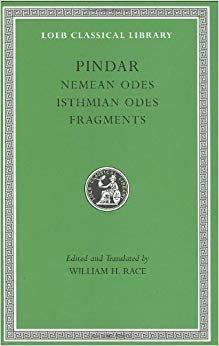
Download Pindar II: Nemean Odes, Isthmian Odes, Fragments. (Loeb Classical Library No. 485) (English and Greek Edition) PDF EPUB
Author: Pindar
Pages: 446
Size: 2.039,14 Kb
Publication Date: April 15,1997
Category: Ancient & Classical
Of the Greek lyric poets, Pindar (ca. 518-438 BCE) was “by much the best for the magnificence of his motivation” in Quintilian’s look at; His fresh Loeb Pindar also includes a helpfully annotated edition and translation of significant fragments, which includes hymns, paeans, dithyrambs, maiden tunes, and dirges.
Like Simonides and Bacchylides, Pindar wrote elaborate odes honoring prize-winning athletes for general public functionality by singers, dancers, and musicians. The majority of the Greek lyric poets drop to us just in equipment, but nearly 25 % of Pindar’s poems survive full. William H. His forty-five triumph odes celebrate triumphs in athletic contests at the four great Panhellenic festivals: the Olympic, Pythian (at Delphi), Nemean, and Isthmian video games.” The esteem of the ancients can help explain why an excellent portion of his function was carefully preserved. Competition now provides us, in two volumes, a fresh edition and translation of the four books of triumph odes, along with surviving fragments of Pindar’s additional poems. In these complicated poems, Pindar commemorates the accomplishment of athletes and effective rulers against the background of divine favor, individual failing, heroic legend, and the moral ideals of aristocratic Greek culture. Readers have lengthy savored them because of their rich poetic vocabulary and imagery, moral maxims, and vivid portrayals of sacred myths.
Competition provides short introductions to each ode and complete explanatory footnotes, providing the reader invaluable assistance to these often challenging poems. Horace judged him “sure to earn Apollo’s laurels.